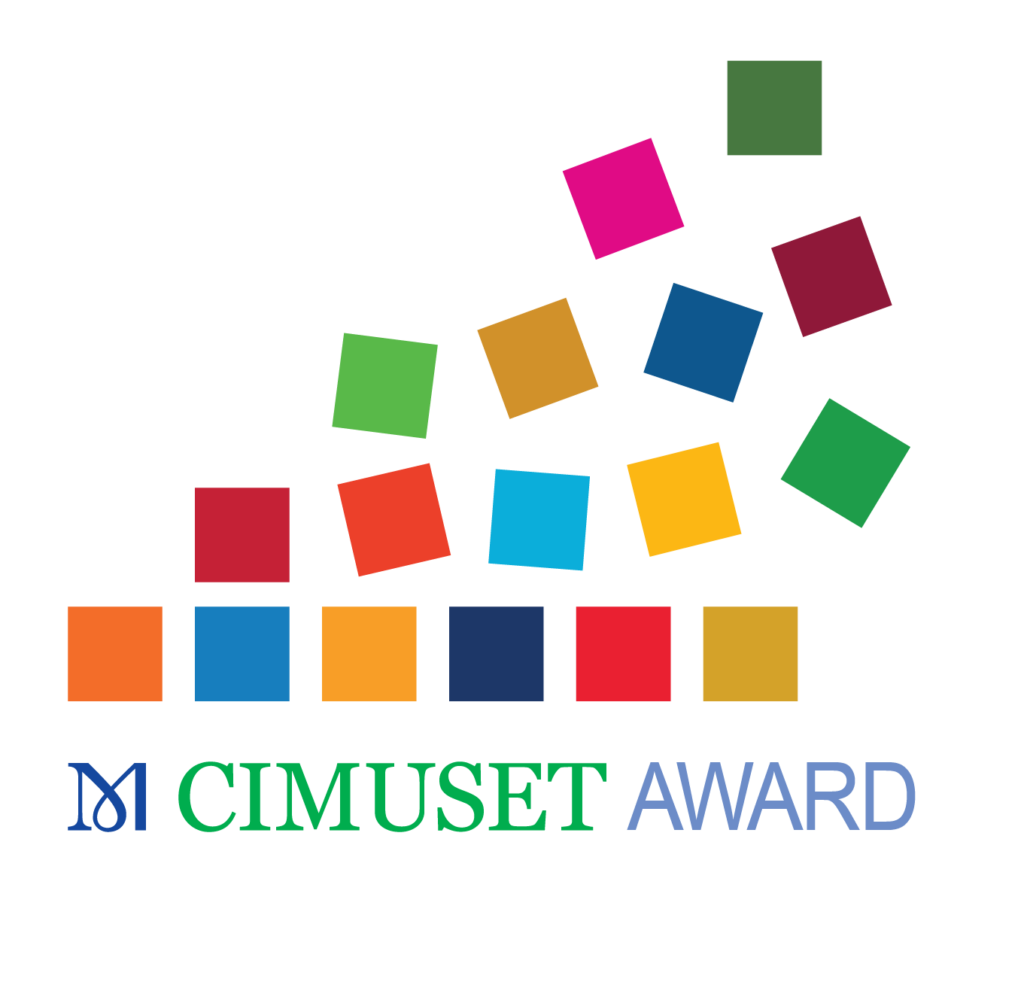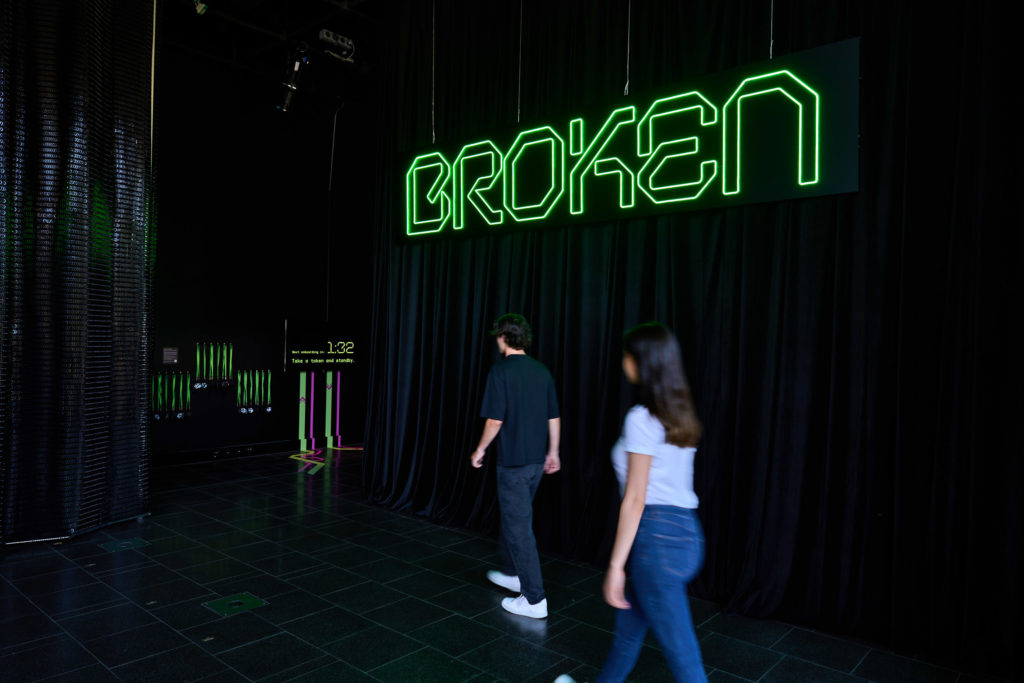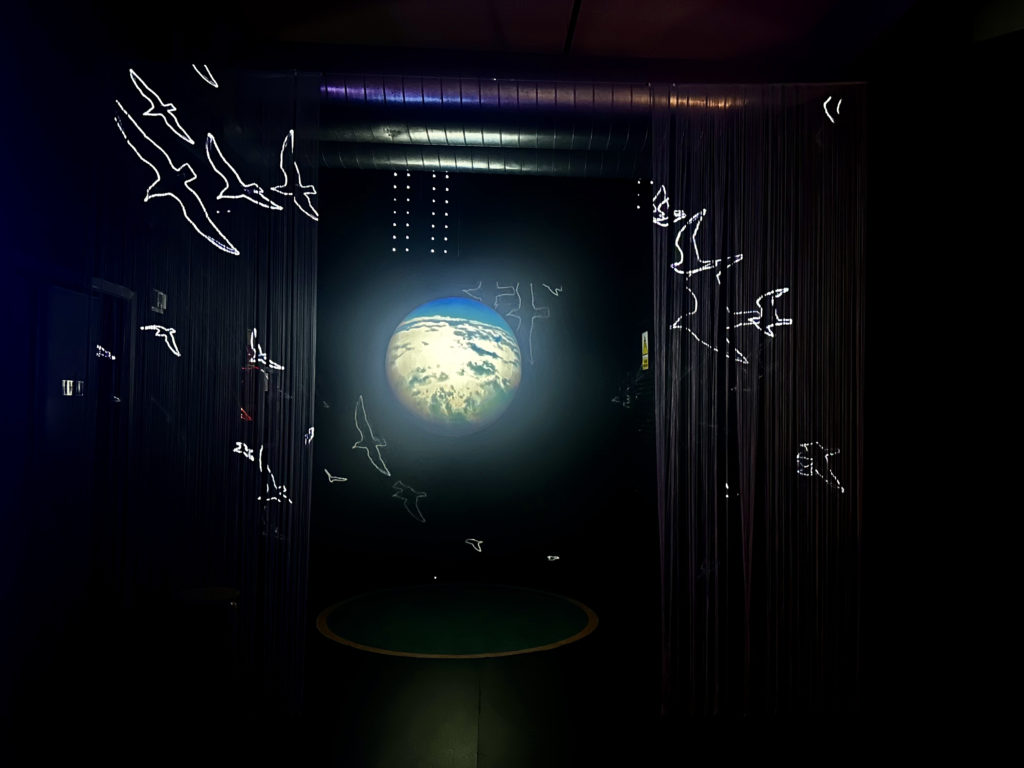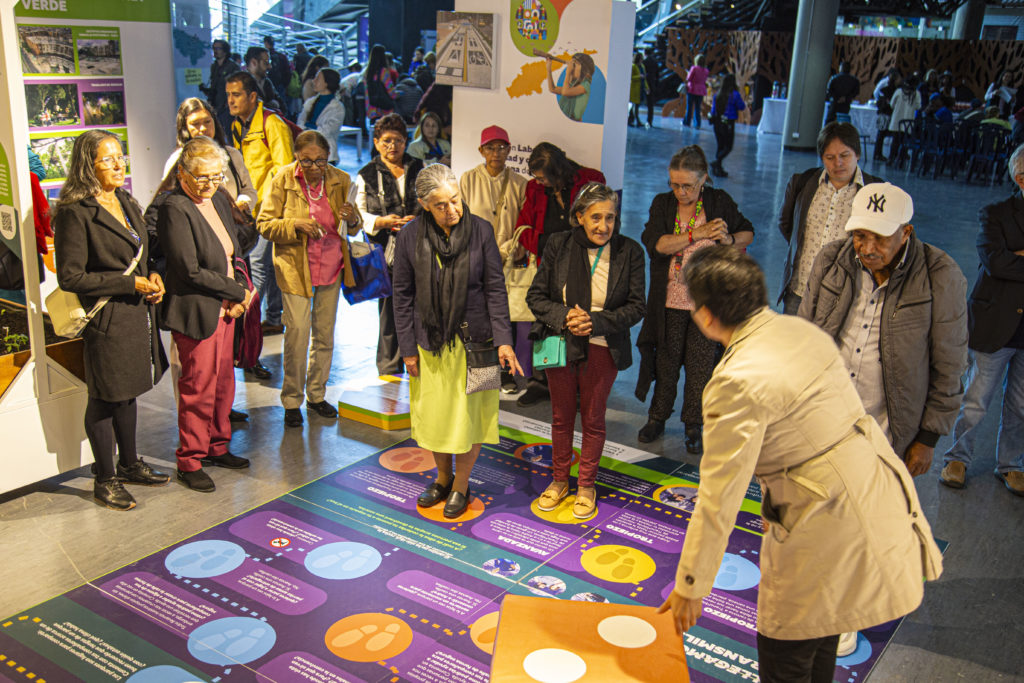Nominated projects 2024

The evaluation committee of the CIMUSET Award 2024 has carefully evaluated applicants for the CIMUSET Award 2024 in accordance with the award criteria. The following three projects have been shortlisted as nominated projects for the CIMUSET Award 2024. The winner will be announced during the CIMUSET Conference in Vienne in September 2024.
MOD., Australia

The BROKEN exhibition at MOD. exemplifies innovative, future-focused museum practice. Designed to address the complex, multidisciplinary challenges humanity faces today, BROKEN aims to build futures-thinking capabilities, fostering confidence and resilience in navigating future uncertainties.
The exhibition emerged from a Future Themes Forum hosted by the museum, where young participants and a wide range of stakeholders expressed concerns about environmental degradation, disinformation, and systemic issues like housing and education.
BROKEN is built on hope theory, exploring alternative systems through provocative “what if” scenarios. It engages visitors in participatory dialogue, incorporating diverse perspectives to imagine new solutions. The exhibition’s design involved collaborations with researchers, students, artists, and creative studios. As part of the exhibition, the museum conducts research projects that gather data on visitors’ attitudes towards hope and change.
MOD. is a futuristic museum of discovery that inspires visitors with ideas at the intersection of science, art, and innovation. Designed for people aged 15-25, MOD.’s exhibitions reveal how research shapes our understanding of the world and informs our futures.
MOD. ensures BROKEN is accessible to all visitors, with features like large print guides, sensory maps, audio descriptions, and Autism-friendly resources. The museum also embeds Aboriginal knowledge, working with First Nations collaborators to enrich the exhibition’s content.
BROKEN aligns with several Sustainable Development Goals, including quality education, reduced inequalities, sustainable cities, and strong institutions. It offers free public access, promoting lifelong learning and social engagement.
The BROKEN exhibition at MOD. embodies the principles of inclusivity, innovation, and participatory practices, making it a deserving candidate for the CIMUSET Award 2024.
Science and Water Museum, Spain

The Descubre H2O (Discover H2O) project is a prime example of an innovative and inclusive museum educational space. Renovated from an outdated space in the museum, this initiative now offers a calming, accessible environment for children aged 2 to 7, including those with special needs. The space limits capacity to 10-12 children with their families to ensure comfort and engagement.
Focusing on water, the room uses interactive materials and activities to foster scientific thinking, creativity, and self-esteem. Activities include guided tours, family play sessions, storytelling, and workshops, all designed to promote learning through play.
The space is dedicated to non-formal education, designed to awaken emotions and interest in science. A public space shared by people of different cultures, races, beliefs, ages, abilities and economic levels. Since its opening, feedback from the community, including educators and families, has been overwhelmingly positive.
Aligned with ICOM’s definition of a museum, Descubre H2O promotes diversity, sustainability, and community engagement. It supports several Sustainable Development Goals, including quality education, gender equality, reduced inequalities, and sustainable communities.
Descubre H2O exemplifies a modern, inclusive approach to museum educational spaces, making it a deserving candidate for the CIMUSET Award 2024.
Maloka – Science Center, Colombia

CiuLab Bogotá is a pioneering project that addresses complex urban challenges while promoting sustainability across social, economic, environmental, and cultural dimensions. Developed through a participatory design methodology, CiuLab Bogotá engages citizens in transformative civic culture and participation within Bogotá. The project focus on coexistence in public spaces, urban landscapes and circular economy, and sustainable mobility.
The project fosters qualified participation in urban development, encouraging diversity, community reflection, and sustainable living practices. It promotes a deeper understanding of mobility dynamics and sustainability in Bogotá.
The project is a collaboration between the Urban Development Institute and Maloka, involving over 400 citizens in co-creating solutions for urban development issues. This collective effort has empowered more than 15,000 citizens to contribute to sustainable urban environments. The project has been positively received, highlighting the importance of citizen engagement in urban transformation.
CiuLab Bogotá ensures diverse participation, capturing perspectives from various ages and backgrounds, such as a visually impaired woman, an LGBTI public transport driver, an indigenous youth, an Afro-descendant teacher, an elderly migrant woman, and a young Venezuelan migrant.
CiuLab Bogotá redefines the role of a museum as an agent of social and educational change. The project significantly contributes to several of the SDGs such as promoting sustainable cities and communities, quality education and responsible production and consumption.
CiuLab Bogotá exemplifies innovative, participatory urban practices, making it a deserving candidate for the CIMUSET Award 2024.